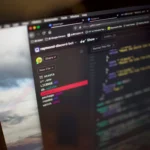How to Learn Python Programming Online: The 2025 Innovator’s Blueprint
Did you know that Python remains the most in-demand programming language in 2025, with over 45% of developers using it daily? From automating marketing workflows to building AI-driven apps, Python’s versatility has made it a non-negotiable skill for entrepreneurs, marketers, and innovators. But with countless resources available, figuring out how to learn Python programming online efficiently can feel overwhelming. This guide cuts through the noise, offering actionable strategies, cutting-edge tools, and 2025-specific insights to fast-track your journey from novice to pro. Whether you’re launching a startup or upskilling for the AI era, here’s your roadmap to mastering Python in the digital age.
Why Python Dominates 2025’s Tech Landscape
Python’s simplicity and scalability have cemented its place as the backbone of modern innovation. By 2025, industries from healthcare to fintech rely on Python for tasks like predictive analytics, blockchain development, and natural language processing. A 2025 Stack Overflow report reveals that 68% of companies prioritize Python skills when hiring, outpacing Java and JavaScript. For entrepreneurs, learning Python means automating repetitive tasks, analyzing customer data, and deploying machine learning models without needing a full-time developer. Marketers leverage Python for sentiment analysis and campaign optimization, while innovators use it to prototype ideas in hours, not weeks. If you’re still asking why to learn Python, the better question is: How to learn Python programming online before competitors outpace you?
Choosing Your Learning Path: Self-Paced vs. Structured Courses
The first step in mastering how to learn Python programming online is selecting the right format. Self-paced platforms like Codecademy offer flexibility, letting you code in-browser with instant feedback. However, structured programs like Coursera’s Python for Everybody provide certifications recognized by employers. For hands-on learners, project-based platforms like DataCamp focus on real-world scenarios, such as analyzing sales data or training AI chatbots. Time-crunched professionals thrive with microlearning apps like Mimo, which deliver 5-minute daily lessons. Whichever route you choose, align it with your goals: Building an MVP? Prioritize frameworks like Django. Entering data science? Master libraries like Pandas and NumPy first.

Leverage AI Tutors and Interactive Platforms
2025’s most groundbreaking how to learn Python programming online tools are powered by AI. Platforms like LearnAI use adaptive algorithms to tailor lessons to your pace, identifying knowledge gaps through real-time coding challenges. ChatGPT-5’s coding assistant now debugs errors, explains concepts in plain language, and even generates project ideas based on your industry. Gamified platforms like Codewars turn learning into a competition, rewarding points for solving puzzles. For visual learners, YouTube channels like Corey Schafer break down complex topics like decorators or APIs into digestible tutorials. The key? Combine AI efficiency with human creativity—join a Discord community to brainstorm projects or get feedback on your code.
Build Portfolio-Worthy Projects (That Solve Real Problems)
Theory means little without practice. Start with mini-projects: A marketer might create a script to scrape trending hashtags, while an entrepreneur could build a basic CRM. As you advance, tackle impactful ideas. For example, Kaggle hosts datasets for predicting stock trends or diagnosing diseases via AI—skills that dazzle clients and investors. Open-source contributions also boost credibility; GitHub’s 2025 State of Octoverse report shows that 40% of hiring managers review candidates’ repositories. Not sure where to begin? Clone popular apps like Instagram using Django or automate your email campaigns with Python libraries. Every project should answer: How does this demonstrate my ability to solve problems with code?
Network with Global Python Communities
Learning in isolation is outdated. Platforms like Python.org’s Community connect you with mentors, job boards, and hackathons. LinkedIn groups like Python Developers of Tomorrow share exclusive webinars on quantum computing or ethical AI. Local meetups (virtual or in-person) offer collaboration opportunities—think building a SaaS tool with fellow entrepreneurs. Reddit’s r/learnpython threads provide instant troubleshooting, while sites like Exercism offer peer-reviewed code reviews. Remember, your network accelerates your growth: A 2025 HackerRank survey found that 73% of developers landed roles through referrals or community connections.
Stay Ahead with 2025’s Emerging Python Trends
Python’s evolution never stops. This year, expect increased demand for skills in quantum programming (via libraries like Qiskit) and AI ethics auditing tools. The rise of no-code AI platforms means Python developers must focus on customization and integration. Podcasts like Talk Python to Me interview experts on cutting-edge topics, while newsletters like Python Weekly highlight new libraries and frameworks. Subscribe to GitHub’s trending Python repos to see what top developers are building. Lastly, diversify your expertise—pair Python with cloud computing (AWS/Azure) or DevOps tools to become indispensable.
Tools and Resources to Supercharge Your Journey
Equip yourself with 2025’s top how to learn Python programming online resources:
- IDEs: VS Code’s Python extension now includes AI-powered autocomplete.
- Libraries: Master LangChain for AI app development and Streamlit for interactive dashboards.
- Books: Automate the Boring Stuff with Python remains a classic, while Python for Finance caters to niche industries.
- Podcasts: Real Python discusses industry-specific use cases weekly.
Allocate 30 minutes daily to code, track progress with apps like Habitica, and celebrate milestones—whether debugging your first script or deploying a full-stack app.
Conclusion: The question isn’t if you should learn Python, but how quickly you can master it. By blending AI-driven platforms, real-world projects, and global networks, how to learn Python programming online becomes a thrilling journey, not a chore. As industries pivot toward automation and AI, your Python skills will unlock doors—from launching disruptive startups to leading data-driven marketing campaigns. Start today, experiment fearlessly, and share your breakthroughs with the world. The future is coded in Python. Will you write the next chapter?










